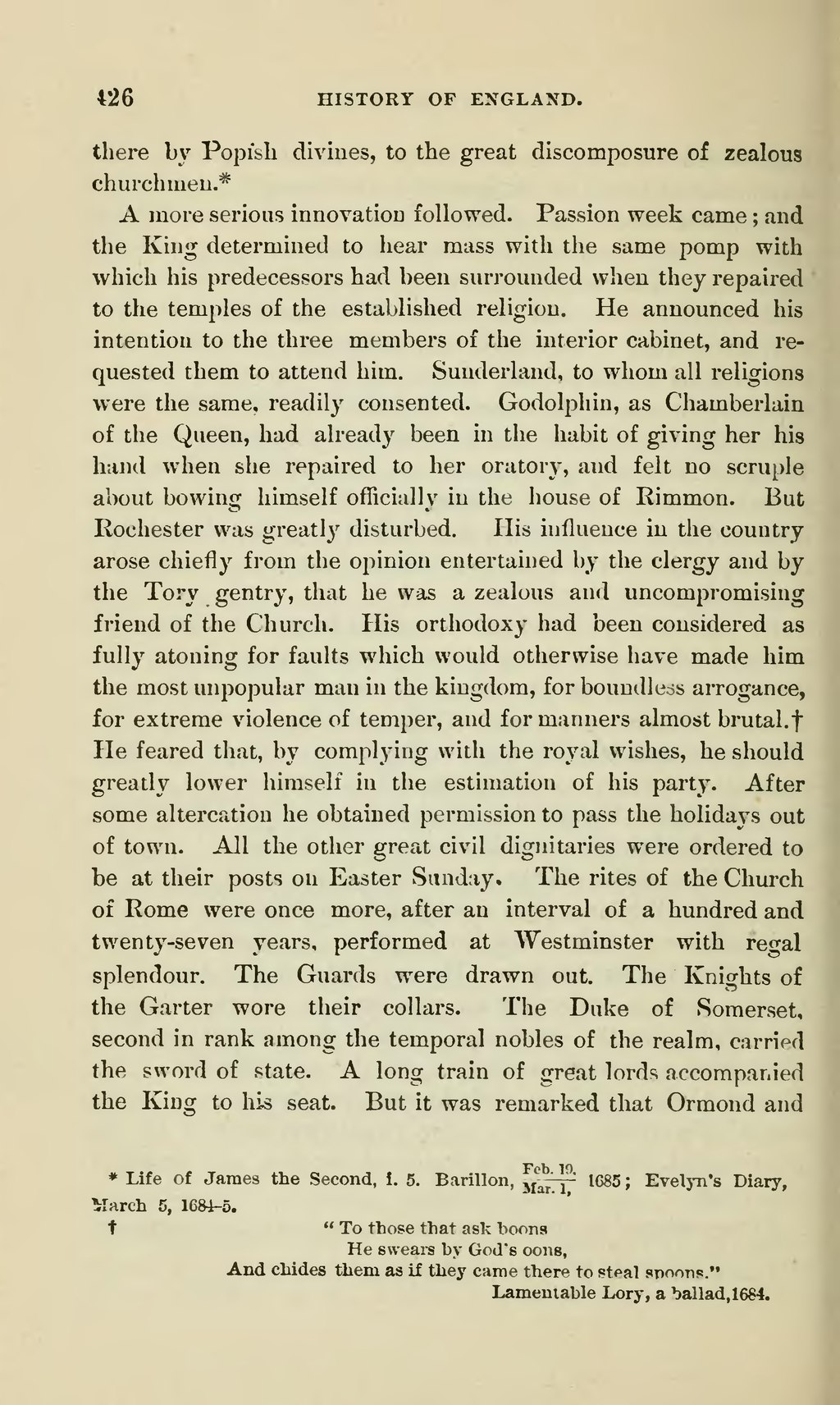there by Popish divines, to the great discomposure of zealous churchmen.[1]
A more serious innovation followed. Passion week came; and the King determined to hear mass with the same pomp with which his predecessors had been surrounded when they repaired to the temples of the established religion. He announced his intention to the three members of the interior cabinet, and requested them to attend him. Sunderland, to whom all religions were the same, readily consented. Godolphin, as Chamberlain of the Queen, had already been in the habit of giving her his hand when she repaired to her oratory, and felt no scruple about bowing himself officially in the house of Rimmon. But Rochester was greatly disturbed. His influence in the country arose chiefly from the opinion entertained by the clergy and by the Tory gentry, that he was a zealous and uncompromising friend of the Church. His orthodoxy had been considered as fully atoning for faults which would otherwise have made him the most unpopular man in the kingdom, for boundless arrogance, for extreme violence of temper, and for manners almost brutal.[2] He feared that, by complying with the royal wishes, he should greatly lower himself in the estimation of his party. After some altercation he obtained permission to pass the holidays out of town. All the other great civil dignitaries were ordered to be at their posts on Easter Sunday. The rites of the Church of Rome were once more, after an interval of a hundred and twenty-seven years, performed at Westminster with regal splendour. The Guards were drawn out. The Knights of the Garter wore their collars. The Duke of Somerset, second in rank among the temporal nobles of the realm, carried the sword of state. A long train of great lords accompanied the King to his seat. But it was remarked that Ormond and

